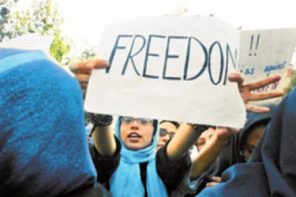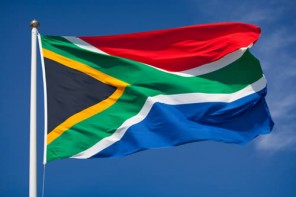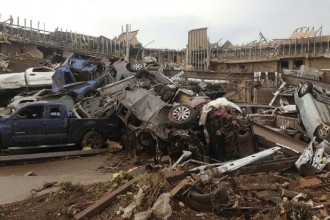So I feel a little bad about my reflexive “Yes, but what about the DYING?!” response to the ICC indictments. For starters, it’s pretty much the most obvious response to have. And mine is neither as well-crafted as Wronging Rights’ nor as comprehensive as Chris Blattman‘s (yeah, I already linked to these, but good work bears rereading).
I feel bad, in part, because I found myself thinking today about this article, in the New York Times Magazine in 2006. It was titled “If not Peace, Then Justice,” — a binary I generally object to, and which in 2006 something closer to “watch this possibility” than 2009’s “oh shit, what just happened?” The article is written by powerhouse foreign affairs writer Elizabeth Rubin, who has no-nonsense street cred from the streets of some of the world’s most inhospitable places.
The reason I bring it up as a way of pointing out that this hand-wringing that’s happening in the wake of the arrest warrant has been going on for years. On the last page of a blessedly long article, Rubin writes:
…. should peace be allowed to trump justice? (The I.C.C. statute itself advises that the prosecutor suspend indictments if they are not in the interests of the victims.) Are reconciliation and compensation better justice than prosecution and punishment?….Sudanese intellectuals close to the government are very good at painting pictures of Armageddon to foreigners, insisting that if the international community demands justice it will only hasten war. As Ghazi Salah al-Addin, a moderate Islamist and presidential adviser, told me in Khartoum: ‘Those who feel threatened by the I.C.C., at a certain point, it will be a matter of life and death to them. They could block the C.P.A. The situation is so fragile. We shouldn’t be complacent. Sudan is a very dangerous place. Your Somalia would be a picnic if Sudan degenerates into chaos. It would draw in the elements you fear most. It would require an influx of U.S. troops just like Afghanistan.'”
Sure, the fact that this scare tactic is old doesn’t make things any less desperate for the Sudanese citizens who, in the wake of the forced exile of humanitarian groups, can’t eat. But it does put Bashir’s latest move in context. Context, in addition to being the thing journalism tends to ignore, helps keep our eye on the ball: While the symptoms of what’s happening in Darfur are humanitarian, the crisis there is a political problem. These threats are political tools Bashir’s regime has trotted out before, and he think she can use them to accomplish a political goal.
Rubin takes on some critics of the ICC in a New Republic round table earlier this month. In response to the argument that Ocampo should’ve maybe thought this thing through, she says:
Actually, the court has thought about those consequences [ie, the political consequences of the warrant]. Up to the point when Luis Moreno Ocampo, the ICC prosecutor, issued the indictment last summer, he was told repeatedly by Andrew Natsios (the former U.S. envoy to Sudan) and others that if the humanitarians pull out and 2 million people die or the country collapses into civil war, it would be his fault. I asked Ocampo at the time whether he agreed with them. And he said, “Today they are being killed. Today they are being destroyed and have no hopes.”
So then the question is: Is Ocampo’s answer good enough? You tell me.
Rubin makes another compelling point, though, about Alex de Waal, whose expertise on Sudan is universally acknowledged, but who has gone from being one of the first to make the genocide call about Darfur to being quite the critic of the ICC and of the AU and then AU/UN force there. Rubin’s take:
De Waal describes how the international community not only did not intervene but behaved with decided cowardice. And he describes how the killing was halted by internal Sudanese factors. Perhaps if Bashir had been indicted at that time, he would not have been in a position to oversee the destruction of Darfur, the slaughter of 200,000 people, the displacement of two and a half million.
Yet another question of politics. Genocide is a human and humanitarian tragedy, yes, but it is fundamentally a political problem. Another way of saying this is that genocide is a policy choice, a move of statecraft. It’s designed to achieve a political objective.
Which means any response to genocide, from activism in the States to indictments in the Hague, and those who are responding have to anticipate the reaction within that political context. That doesn’t mean warrants and things are off the table. But it does mean we have to be honest, as Rubin’s chronicles show that Ocampo has been, about the political consequences of apolitical moves.
Now if only that meant there was only one right choice…




Great article again, I hope you don’t mind me mentioning some of these in my blog or sending people from twitter?
Cheers,
Simon